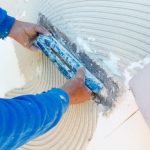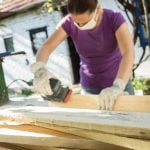Why not home improvement? Many homeowners feel the pressure to constantly update and renovate their homes, but what if there are benefits to embracing imperfection and delaying home improvement projects? This article will explore the often-overlooked advantages of not doing home improvement, including financial considerations, environmental impact, stress and maintenance costs, alternative options for refreshing your space, and prioritizing time and relationships.
Delaying home improvement projects can actually save homeowners money in the long run. From avoiding unnecessary upgrades to finding creative ways to refresh your space without traditional renovations, there are many ways to cut costs by not constantly improving your home. Additionally, not engaging in relentless home improvement can also have a positive environmental impact by reducing waste and resource consumption.
The hidden costs of constantly updating your home go beyond just finances. Stress and maintenance can take a toll on homeowners who feel pressured to keep up with the latest trends and design fads. Embracing imperfection and finding beauty in a not perfectly renovated home can lead to less stress and more satisfaction with your living space.
Financial Considerations
When it comes to home improvement, the costs can quickly add up. From materials to labor, the price tag for renovating or remodeling a home can be substantial. However, one often overlooked benefit of not doing home improvement is the potential to save money. By delaying certain projects and taking a strategic approach to home improvement, homeowners can avoid unnecessary expenses.
According to a survey conducted by HomeAdvisor, the average cost of a home renovation in 2021 was $46,792. This includes everything from minor updates to major overhauls. For many homeowners, this kind of investment may not be feasible, especially in uncertain economic times. Delaying certain home improvement projects can provide financial relief and allow individuals to budget and save for the renovations that truly matter to them.
Another financial consideration when it comes to home improvement is the long-term impact on property value. While some upgrades can increase a home’s resale value, others may not provide a significant return on investment. By carefully evaluating which projects are worth pursuing and which ones can wait, homeowners can make smart financial decisions for their future.
Finally, there are also hidden costs associated with constantly updating and renovating a home. Maintenance expenses, such as repairs and replacements for upgraded features, may arise more frequently in homes with extensive improvements. By not constantly engaging in major home improvement projects, homeowners can potentially reduce these ongoing maintenance costs over time.
| Financial Considerations | Data |
|---|---|
| Average cost of a home renovation in 2021 | $46,792 |
| Percentage of ROI for different upgrades | Varying percentages |
Environmental Impact
When considering home improvement projects, it’s essential to think about the environmental impact that these projects can have. From the materials used to the waste generated, home improvement can often be detrimental to the environment. Here are some ways in which not engaging in traditional home improvement can actually be eco-friendly:
- Reduced resource consumption: By choosing not to renovate or remodel, you are effectively reducing the demand for new materials such as wood, metal, and plastic. This reduction in resource consumption can help lower overall environmental impact and preserve natural resources for future generations.
- Less waste generation: Home improvement projects often generate a significant amount of waste, from packaging materials to old fixtures and appliances. By opting out of these projects, you can minimize the amount of waste that ends up in landfills, ultimately reducing your carbon footprint.
- Preservation of existing structures: Not constantly tearing down and rebuilding parts of your home allows for the preservation of existing structures and materials. This can contribute to the longevity of your home and reduce the need for frequent replacements.
In addition to these environmental benefits, embracing a mindset of “why not home improvement” can also lead to financial savings and reduced stress. By carefully considering whether a project is truly necessary, homeowners can make more conscious decisions with their time and resources while also benefiting the environment.
Stress and Maintenance
Have you ever considered the hidden costs of constantly updating your home? While home improvement projects are often seen as a way to increase the value and appeal of a property, they can also come with a hefty price tag in terms of stress and maintenance. Here are some reasons why not focusing on home improvement can actually be beneficial.
- Financial Savings: Home improvement projects can quickly add up in terms of expenses, from materials and labor to unexpected issues that may arise during the process. By delaying these projects, homeowners can save a significant amount of money and allocate their resources towards other priorities.
- Mental Well-being: The constant pressure to maintain and update a perfect home can lead to high levels of stress and anxiety. Not engaging in home improvement allows individuals to embrace imperfection and reduce the mental burden of always striving for an ideal living space.
- Reduced Maintenance: Renovations and upgrades require regular maintenance to ensure their longevity. By forgoing these projects, homeowners can free themselves from ongoing maintenance tasks, allowing them to focus on other aspects of their lives.
When considering whether or not to embark on home improvement projects, it’s important to weigh the potential stress and maintenance involved. While improving your living space has its benefits, there are also valid reasons why not constantly chasing after renovation perfection can lead to a more balanced and fulfilling lifestyle.
Embracing Imperfection
Many people believe that having a perfectly renovated home is the ultimate goal, but there is beauty in imperfection. Not having a perfectly renovated home can actually bring a sense of authenticity and personality to your living space. It allows for the unique character of your home to shine through, rather than conforming to the cookie-cutter standards of perfection.
Embracing imperfection in your home can also be liberating and empowering. You are free from the pressure of constantly trying to keep up with the latest trends or adhere to societal expectations of what a perfect home should look like. Instead, you have the freedom to create a space that reflects your individuality and personal style without feeling the need to make constant improvements.
Moreover, not having a perfectly renovated home can lead to more meaningful and genuine connections with others. Guests will feel more comfortable in a space that feels lived-in and authentic, rather than one that looks like it came straight out of a magazine. It encourages an environment where people can relax, be themselves, and focus on building relationships, rather than worrying about appearances.
| Reasons | Benefits |
|---|---|
| Authenticity | Reflects individuality and personal style |
| Liberation | Frees from societal pressures and expectations |
| Genuine Connections | Makes guests feel more comfortable and encourages meaningful relationships |
Alternative Options
Decor Swaps and Rearranging
One creative way to refresh your space without the traditional home improvement projects is by simply swapping out decor and rearranging furniture. Instead of investing in new items, consider moving pieces from one room to another for a fresh look. This not only helps save money but also gives your home a new feel without the need for major renovations.
DIY Projects
Another alternative option to traditional home improvement is to engage in do-it-yourself (DIY) projects. From creating your own wall art to upcycling furniture, DIY projects can add a personal touch to your space without breaking the bank. It’s a great way to embrace creativity and imperfection while avoiding the stress and high costs that come with professional renovations.
Nature Integration
Bringing nature into your home is a unique way to refresh your space without traditional home improvement. Adding plants or creating a small indoor garden can instantly liven up any room and create a connection to the outdoors. Not only does it bring an eco-friendly element into your home, but it also promotes relaxation and wellness, making it a refreshing alternative to typical renovation projects.
By exploring these alternative options, homeowners can find creative ways to refresh their spaces without feeling the pressure to constantly engage in costly and time-consuming home improvement projects. Whether through decor swaps, DIY projects, or integrating nature into the home, there are plenty of ways to update living spaces without undergoing extensive renovations.
Prioritizing Time and Relationships
As our lives become increasingly busy, it’s important to consider how not focusing on home improvement can actually improve our quality of life. While it’s natural to want to create a beautiful and comfortable living space, prioritizing time and relationships over constant home improvement projects can offer numerous benefits.
Time for What Matters
When we constantly focus on home improvement, we may find ourselves spending every spare moment working on our houses rather than enjoying quality time with loved ones. By taking a step back from these projects, we free up valuable time to spend with family and friends, pursue hobbies, or simply relax and recharge. Investing in relationships and experiences can bring far more fulfillment than perfectly renovated spaces.
Mental and Emotional Well-Being
The pressure to constantly improve our homes can take a toll on our mental and emotional well-being. The stress of never feeling satisfied with our living spaces or the financial strain of keeping up with renovations can be overwhelming. By shifting the focus away from home improvement, we can reduce stress and find contentment in the present state of our homes.
Connecting With Others
Not focusing on home improvement allows us to redirect our energy towards building meaningful connections with others. Whether it’s hosting dinner parties, attending social events, or simply having more time for conversations with loved ones, prioritizing relationships over home improvement enriches our lives in ways that material possessions cannot. It’s this human connection that brings true joy and fulfillment in life.
By embracing the decision not to focus on home improvement, individuals can experience a plethora of positive impacts that contribute to a more balanced and satisfying life. From increased time for what matters most to improved mental well-being and deeper connections with others, choosing not to prioritize constant home improvement is a valid lifestyle choice worth exploring.
Conclusion
In a world where home improvement is often glamorized and seen as a necessity, it’s important to consider the benefits of not constantly renovating and updating our living spaces. By choosing to delay home improvement projects, individuals can actually save money and reduce their environmental impact. The hidden costs of stress and maintenance that come with constantly updating a home are often overlooked, as is the beauty of embracing imperfection.
Instead of focusing on achieving a perfectly renovated home, there are alternative options that allow individuals to refresh their space in creative ways without traditional home improvement. Whether it’s repurposing existing furniture or adding personal touches to the decor, embracing imperfection can create a unique and charming living environment.
Ultimately, not prioritizing constant home improvement can improve an individual’s quality of life by allowing them to prioritize time and relationships over maintaining an overly perfect living space. By rethinking the pressure to constantly improve our homes, individuals can find contentment in their current surroundings while saving money, reducing their environmental impact, and focusing on what truly matters in life. So why not embrace imperfection and choose to not do home improvement?

I’m thrilled to have you here as a part of the Remodeling Top community. This is where my journey as an architect and remodeling enthusiast intersects with your passion for transforming houses into dream homes.





